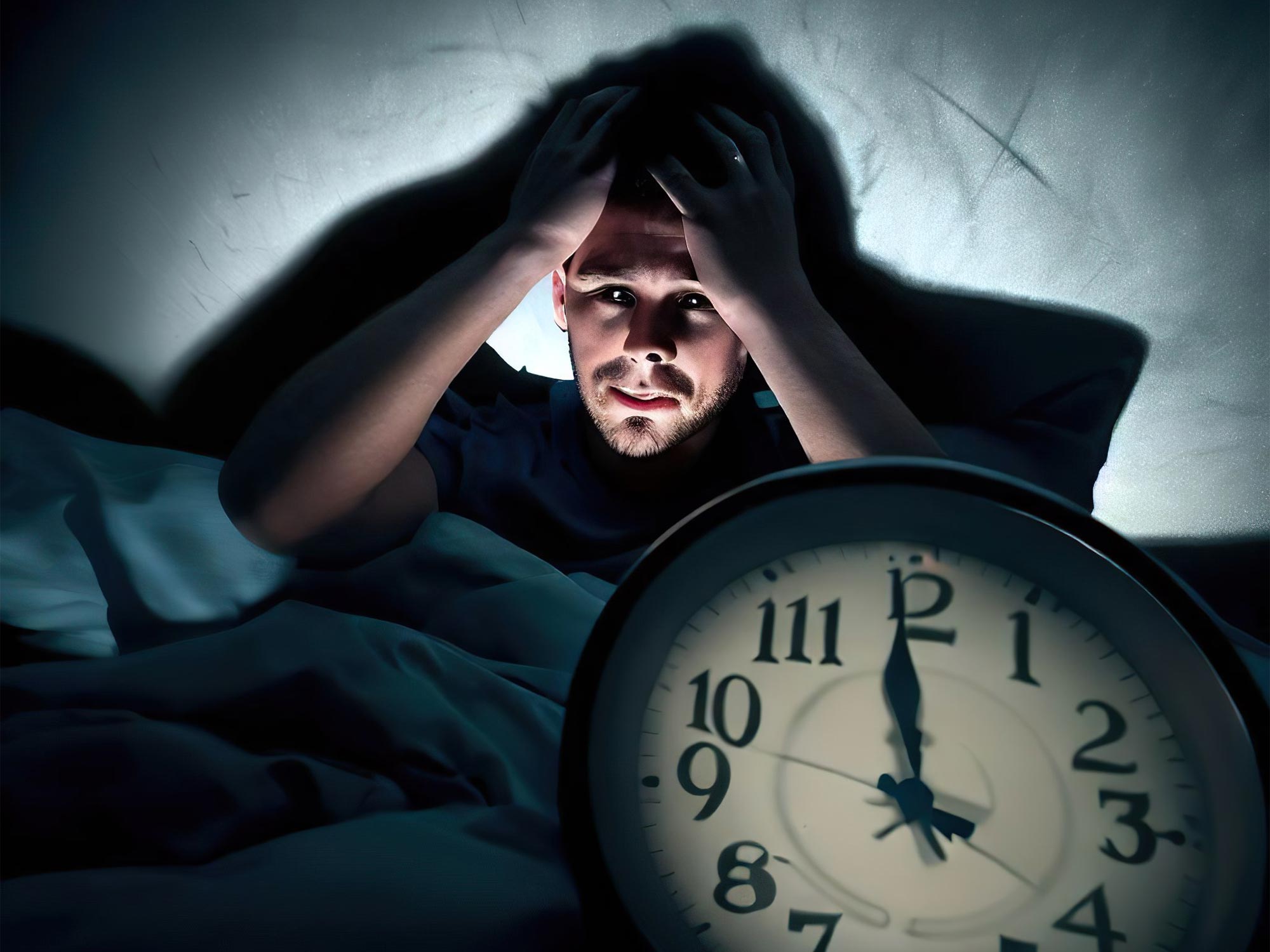
Einfache und effektive Lösung zur Behandlung von Schlaflosigkeit

Untersuchungen zeigen, dass das Beobachten der Uhr beim Versuch einzuschlafen die Symptome von Schlaflosigkeit verschlimmert und den Gebrauch von Schlafmitteln erhöht. Die Studie, bei der fast 5.000 Patienten in einer Schlafklinik untersucht wurden, ergab, dass das Zeitüberwachungsverhalten einen Kreislauf der Angst auslöst, nicht genug Schlaf zu bekommen, was zu erhöhtem Stress und Schwierigkeiten beim Einschlafen führt. Daher greifen Menschen wahrscheinlich auf Schlafmittel zurück, um die Kontrolle über ihren Schlaf zurückzugewinnen. Eine einfache Verhaltensintervention, die das Überprüfen der Uhrzeit vermeidet, kann helfen, Schlaflosigkeit effektiver zu bewältigen.
Untersuchungen der Indiana University unter der Leitung von Spencer Dawson ergaben, dass das Schauen auf die Uhr beim Versuch einzuschlafen die Schlaflosigkeit verschlimmerte und den Einsatz von Schlafmitteln begünstigte. Die Studie legt nahe, dass die Vermeidung des Überprüfens der Uhrzeit eine einfache und wirksame Lösung zur Behandlung von Schlaflosigkeit sein kann.
Laut einer Studie eines Professors der Indiana University verschlimmert das Schauen auf die Uhr beim Versuch zu schlafen die Schlaflosigkeit und die Verwendung von Schlafmitteln – und eine einfache Änderung kann dazu beitragen, dass Menschen besser schlafen.
Die von Spencer Dawson, klinischer Assistenzprofessor und stellvertretender Leiter der klinischen Ausbildung in der Abteilung für Psychologie und Gehirnwissenschaften am College of Arts and Sciences, geleitete Studie konzentriert sich auf eine Stichprobe von fast 5.000 Patienten, die sich zur Behandlung in der Schlafklinik vorstellen.
Schlaflosigkeit betrifft zwischen 4 und 22 % der Erwachsenen und geht mit langfristigen Gesundheitsproblemen einher[{“ attribute=““>cardiovascular disease, diabetes and depression.
Participants completed questionnaires about the severity of their insomnia, their use of sleep medication and the time they spent monitoring their own behavior while trying to fall asleep. They were also asked to report any psychiatric diagnoses. Researchers conducted mediation analyses to determine how the factors influenced each other.

Spencer Dawson. Credit: Indiana University
“We found time monitoring behavior mainly has an effect on sleep medication use because it exacerbates insomnia symptoms,” Dawson said. “People are concerned that they’re not getting enough sleep, then they start estimating how long it will take them to fall back asleep and when they have to be up. That is not the sort of activity that’s helpful in facilitating the ability to fall asleep — the more stressed out you are, the harder time you’re going to have falling asleep.”
As the frustration over sleeplessness grows, people are more likely to use sleep aids in an attempt to gain control over their sleep.
The results are published in The Primary Care Companion for CNS Disorders. Additional co-authors are Dr. Barry Krakow, professor of psychiatry and behavioral health in the Mercer University School of Medicine; Patricia Haynes, associate professor in the Mel and Enid Zuckerman School of Public Health at the University of Arizona and Darlynn Rojo-Wissar, a postdoctoral fellow at Alpert Medical School of Brown University.
Dawson said the research indicates a simple behavioral intervention could provide help for those struggling with insomnia. He gives the same advice to every new patient the first time they meet.
“One thing that people could do would be to turn around or cover up their clock, ditch the smart watch, get the phone away so they’re simply not checking the time,” Dawson said. “There’s not any place where watching the clock is particularly helpful.”
Reference: “Use of Sleep Aids in Insomnia: The Role of Time Monitoring Behavior” by Spencer C. Dawson, PhD; Barry Krakow, MD; Patricia L. Haynes, PhD; Darlynn M. Rojo-Wissar, PhD, MPH; Natalia D. McIver, PhD and Victor A. Ulibarri, BS, 16 May 2023, The Primary Care Companion for CNS Disorders.
DOI: 10.4088/PCC.22m03344
With 15 years of of research and clinical experience in the sleep field, Dawson is interested in comparing individuals’ sleeping experiences with what is concurrently happening in their brains. He trains and supervises doctoral students in the Department of Psychological and Brain Science’s Clinical Science Program.

„Böser Kaffee-Nerd. Analyst. Unheilbarer Speckpraktiker. Totaler Twitter-Fan. Typischer Essensliebhaber.“
